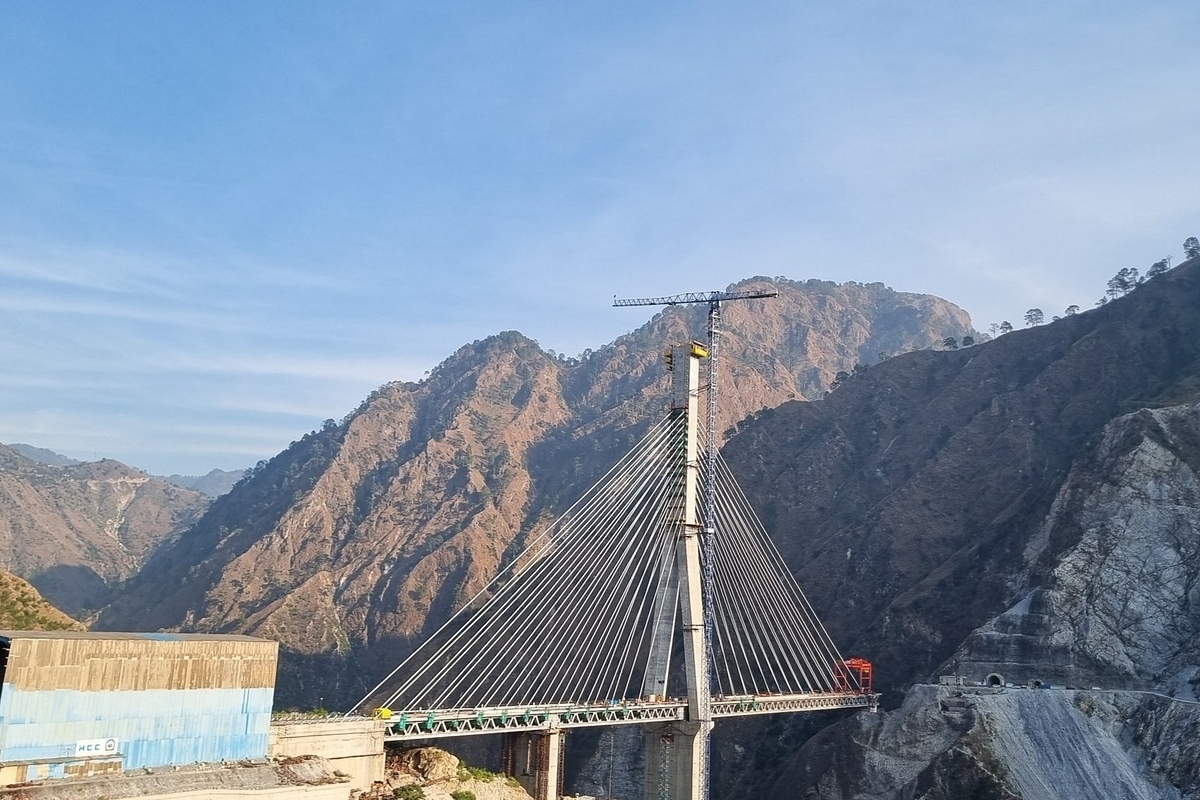News Brief
In Pictures: All You Should Know About Anji Khad Bridge, India’s First Cable-Stayed Railway Bridge
- It is at a height of 331 metres above the river bed and connects Katra with Reasi in the Kashmir rail link project.The 1,315-metre-long bridge can withstand strong winds up to 266 km/h as well as earthquakes of great intensity.

The Anji Khad Bridge. (Via Twitter)
Anji Bridge, the first cable-stayed railway bridge in the country, is part of the Udhampur-Srinagar-Baramulla Rail Link (USBRL) project.
The bridge construction has been divided into many segments. These include the building of the Katra-Udhampur segment, the Quazigund-Baramulla segment, Quazigund-Banihal segment, etc.
Hindustan Construction Company (HCC) is building the bridge with a projected cost of Rs 435 crore.
The 1,315-metre-long bridge can withstand strong winds of up to 266 km/h as well as earthquakes of great intensity.
It is at a height of 331 metres above the river bed to connect Katra with Reasi in the Kashmir rail link project.
The rail bridge is to be supported by 96 cables made in Slovakia.
Construction work with a 36-month completion window began in March 2017. It is designed by an Italian firm and proof checking is done by a British company.
The project is among the most difficult ones that Indian Railways has taken on. It involves building the world's highest railway bridge over the Chenab River, reports Financial Express.
The bridge is being designed to facilitate train movement of up to 100 kmph speed.
Various unique techniques and equipment are being used with state-of-the-art tower cranes of 40 tonnes capacity with extendable height up to 205 metres for facilitating the construction activities at height of up to 193 metres.
The disturbances in Jammu and Kashmir, the non-availability of sand, farmer protest and Covid-19 pandemic are major reasons for the delay in executing the project.
Support Swarajya's 50 Ground Reports Project & Sponsor A Story
Every general election Swarajya does a 50 ground reports project.
Aimed only at serious readers and those who appreciate the nuances of political undercurrents, the project provides a sense of India's electoral landscape. As you know, these reports are produced after considerable investment of travel, time and effort on the ground.
This time too we've kicked off the project in style and have covered over 30 constituencies already. If you're someone who appreciates such work and have enjoyed our coverage please consider sponsoring a ground report for just Rs 2999 to Rs 19,999 - it goes a long way in helping us produce more quality reportage.
You can also back this project by becoming a subscriber for as little as Rs 999 - so do click on this links and choose a plan that suits you and back us.
Click below to contribute.
Latest